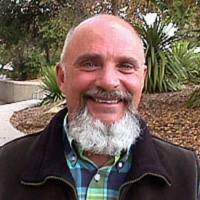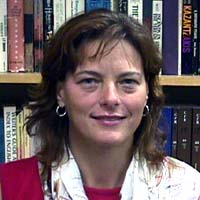|
|
Dr. Dawn Gavin, October 26, 2005, EESAT 115, 3: 30 pm Artist Dawn Gavin talks about her visual practice, which thematizes subject areas as diverse as cartography, camouflage, entomology and botany. She constructs uncertain landscapes that exist precariously at the threshold between the visible and the invisible. Her talk is illustrated with her map/landscape work, which is currently on display at TWU. She is specifically interested in what it means to occupy a space between places, and how one negotiates this alternative positioning. Transitory belonging and the dialectical interplay between lost and found are central themes within her work. Dawn Gavin is a native of Scotland. She has lived in the US since 1997 and teaches Drawing and Foundations at The University of Maryland, College Park. Her work has been exhibited in over 50 exhibitions worldwide. It investigates issues of identity and displacement, employing a range of media from collage and installed drawings to digital video. Gavin has written for 'Circa' Arts Magazine (Ireland), and was a contributing editor for 'Transcript: A Journal of Visual Culture' (Scotland). Her most recent exhibition 'zero / point / position' is on display at Texas Woman's University West Gallery until October 28th 2005. |
|
Dr. Fred Provenza, October 12 , 2005, EESAT 125, 3: 30 pm Paradoxes of Diets and Habitats:Shifting Paradigms and the Dynamics of Plant-Herbivore Interactions Professor Provenza illustrates the theoretical and practical consequences of paradigm shifts in science. His focus will be on animal foraging behavior in relation to habitat characteristics and management practice. What was traditionally considered proper grazing management may have trained generations of livestock to "eat the best and leave the rest" thus inadvertently accelerating a decline in biodiversity and an increase in the abundance of less desirable plant species. During his talk, Provenza addresses the paradoxical ways morphology, physiology, nutrients and toxins interact with animal behavior and human management. Fred Provenza is Professor in the Department of Forest, Range, and Wildlife Sciences at Utah State University. His research focuses on behavioral principles that underlie plant-herbivore interactions. He gives courses for Natural Resource Conservation Service employees, students, and faculty members from all over the United States, Puerto Rico, Hawaii, and Alaska. He has received various awards from the Society for Range Management, (co-)authored over 150 publications, and is co-founder of BEHAVE Consortium for the Application of Behavioral Principles in Management of the USDA Initiative for Future Agriculture and Food Systems (IFAFS), see http://www.behave.net/ |
|
|
|
Professor Whitney Sanford, September 15 , 2005, EESAT 178, 7: 30 pm Invited to the Dance: Hindu Narratives and Tropes of Environmental Discourse Hindu narratives of agriculture invite us to reconsider our framework for intervention upon the earth as it relates to agricultural practice. Agriculture clearly is a process of intervention, and environmental discourse has failed to include agriculture in its discussions. Hindu narratives of agricultural deities Balarama and Prthu and their relationship to the earth suggest models of relationship in which the earth is a partner and an active moral agent. These stories exist in a larger context of social and familial obligations in which the social and agricultural health of the community are linked; Balarama and Prthu are agricultural and protective deities, and their responsibilities include insuring the earth's fecundity. These Hindu narratives along with extant models of partnership and relationship offer guidelines for developing criteria to evaluate the quality of human-nature interventions. Whitney Sanford is an associate professor in the Department of Philosophy and Religious Studies at Iowa State University. |
|
Professor Susan Solarz, May 25 , 2005, EESAT 120, 4: 00 pm Conservation Education: Preparing Students for Careers in Conservation Biology Dr. Solarz discusses her work to better prepare students for conservation careers through projects like the Sligo Creek Restoration Project. The lecture is a dialogue about challenges in conservation education and how to best prepare our students for effective and fulfilling careers. Susan Solarz is a Scholar-in-Residence at American University. Her interests lie at the interface of science and policy. Although she is trained as a scientist, her professional background is in the national policy arena. Policy decisions that are made by people today can affect our environment for many generations. Today, much of environmental policy is set by nonscientists, and it is her interest to assist well-trained scientists in transitioning into policy positions. |
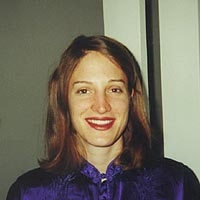 |
|
Dr. Alan Udoff From Worldless Silence to Engaged Speech: How Jean Amery's Auschwitz Book Came To Be March 9, 2005, EESAT 110, 3: 30 pm "In 1964, when the great Auschwitz-trial in Frankfurt began, I wrote the first essay in connection with my experiences in the Third Reich, after twenty years of silence. . . . But when the latter work was finished, I felt that it would have been impossible to let the matter stand with that. Auschwitz. After all, how had I arrived at that place?" Thus Améry begins the Preface to At the Mind's Limits (Indiana University Press,1980; German original 1977). Dr. Udoff's talk examines the relationship between evil as the experience of worldless silence and testimony as a return to a world shared with others in Améry's attempts to come to terms with his fate at the hands of the Nazis. He focuses on what Améry speaks of as the "hesitation" in passing from silence to speech. The Sanctification of Life: Spiritual Resistance in the Holocaust March 10, 2005, ESSC 255, 4: 00 pm Dr. Udoff examines the phenomenon of spiritual or cultural resistance during the Holocaust. He will begin by surveying the idea of spiritual resistance as it is traditionally found in Judaism, namely, the notion of kiddush hashem (or martyrdom; literally, "sanctification of the Name [of God]"). He traces this idea from its Biblical roots through its Talmudic and medieval development. The Rabbis that played a key role in the latter were not only familiar with the tradition of kiddush hashem, but also aware that it needed to be re-interpreted so as to accommodate the altered moment in history in which European Jewry found itself. That is to say, they held that the sanctification of God would have to take the form of the "sanctification of life" (kiddush hachayim). Dr. Udoff goes on to examine this notion in more detail. The lecture concludes with a recorded presentation of a song composed in Auschwitz. Dr. Alan Udoff was born in1943 in Brooklyn, NY, has an M.A. in Philosophy from the Catholic University of America and was a Louis L. Kaplan Professor of Philosophy at Baltimore Hebrew University from 1983-1999. He currently holds a joint professorship in the Departments of Philosophy and Religious Studies at St. Francis College. The principal areas of his research and writing are in the histories of philosophy and Jewish thought, literary theory, and the Holocaust. He has written on Kafka, Strauss, Buber, Rosenzweig, Celan, the Holocaust, and various aspects of Jewish thought. He is currently at work on a book- length commentary on Jean Améry's At the Mind's Limits. |
|
Professor David Kaplan, March 2, 2005, EESAT 320A, 3: 30 pm Paul Ricoeur and the Philosophy of Technology This paper brings the philosophy of Paul Ricoeur into dialogue with the philosophy of technology. It describes Ricoeur's philosophies, explains what the philosophy of technology is and how it relates to traditional philosophical concerns in epistemology, metaphysics, and moral and political philosophy as well as how Ricoeur's works might contribute to our understanding of technology. Finally, it examines what the philosophy of technology has to offer to Ricoeur and his version of hermeneutics. The philosophical study of technology casts a critical light not only on the philosophy of Paul Ricoeur but on contemporary Continental Philosophy as well. David M. Kaplan is an Assistant Professor of Philosophy in the Department of Humanities at Polytechnic University in Brooklyn. His areas of research are the works of French philosopher Paul Ricoeur and the Philosophy of Technology. He is the editor of readings in the Philosophy of Technology (Rowman & Littlefield, 2004), and co-editor of Society, Ethics, and Technology (Wadsworth, 2005). Recently, he has turned his attention to the moral and political dimensions of of technologically modified food and enhancement technologies. |
 |
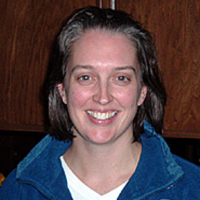 |
Dr. Heather Douglas, February 25, 2005, EESAT 115, 3: 30 pm The Obligations of Expertise: What do Scientists Owe The Public? In traditional research ethics, the obligations of scientists are relatively straightforward. Do not falsify data; do not claim work as your own that is not; attribute credit where credit is due; be open about your methods and discoveries. Yet these obligations are directed primarily at the scientific community. They express the norms that must be followed if science is to be effectively produced by this community. What of obligations to people outside of this community? Since World War II, science and scientists have played an increasingly important role in public life, and science has grown tremendously with public funding. Although private funding of science now exceeds public funding in the U.S., it is still an open question what obligations arise from this increased public role. This talk will explore the view that the public authority of science gives rise to public obligations among scientists that go well beyond traditional internal research ethics. The implications for the norms of scientific practice will be discussed, as will the potential for forbidden research topics, and how these issues may be dealt with while protecting scientific autonomy. Heather Douglas is currently an assistant professor in the Department of Philosophy at the University of Tennessee. Her research focuses on the relationships among science, values, and policy-making, and has been supported by the National Science Foundation. Her work has been published in Philosophy of Science, American Philosophical Quarterly, Synthese and Foundations of Chemistry. |
|
Dr. Marybeth Bauer, February 18, 2005, EESAT 320A, 3: 30 pm Reforming Federal Endangered Species Funding An Experiment Taking The Policy Turn This presentation illustrates interests in research at the interface of multi-disciplinary approaches to understanding and managing environments - e.g., philosophical, scientific, policy, economic, and educational. Dr. Bauer will discuss her ongoing, collaborative project to reform federal policy for allocating funds to threatened and endangered species. This project demonstrates a role for environmental philosophers to work with scientists, policy analysts, economists, community interest groups, and others toward reflective, effective environmental policy and practice. Marybeth Bauer received a Masters in Natural Resources from Ohio State University in 2000, and her PhD in Philosophy from Bowling Green State University in 2004. Professor Bauer is currently a lecturer in the Environmental Studies Program at the University of Maryland. |
 |
Dr. Eduard Müller, February 15, 2005, EESAT 110, 3: 30 pm Biosphere Reserves as a local development tool with emphasis on sustainable tourism The Man and the Biosphere Program (MaB) of UNESCO promotes the integration of conservation through a vision that considers three "layers" of work including procurement of long-term integrity of ecosystems, participation of local communities, organization of Local Councils for Sustainable Development, promotion of just and equitable participation of the co-responsible parties, and involving the socio- economic sector by supporting companies with a vision of environmental and social responsibility. International recognition by UNESCO fosters development of alternative tourism that respects and protects the values and culture of the communities and permits a positive relationship between the locals and tourists. The UNESCO Biosphere Reserve model promotes more harmonious development with the social, cultural and environmental surroundings and presents an excellent opportunity to achieve development of a truly sustainable tourism in social, economic and environmental terms with a more equitable distribution of the obtained benefits. Dr. Eduard Müller, President of the University for International Cooperation, San José, Costa Rica, an institution devoted to interdisciplinary education oriented toward sustainability in the contexts of globalization, local and regional realities, is an outstanding Latin American leader in the fields of ecotourism and protected areas. Since 2002, he has been working as a consultant for the Chilean Government and collaborating with the Omora Foundation for the creation of the UNESCO Cape Horn Biosphere Reserve at the southern extreme of the Americas. |
|
Professor Bron Taylor, February 10, 2005, BIOL 117, 7: 00 pm This presentation examines the evolution of and prospects for the 'greening of religion' phenomenon that is sometimes touted as a necessary prerequisite to the construction of environmentally sustainable societies. It includes discussion of transformations within the worlds' dominant religious traditions, the role of environmental philosophers in these transformations, as well as diverse forms of what we might call "nature religions." Projecting long-term, the presentation ponders whether we are witnessing the first shoots of a global planetary civic earth religion that will, eventually, bear fruit. The lecture concludes by reflecting on what lessons for environmental philosophers and activists there might be in these developments. Bron Taylor is Samuel S. Hill Eminent Scholar of Ethics at the University of Florida. He is Editor-in-Chief of the two-volume Encyclopedia of Religion and Nature (Continuum 2005), and at the University of Florida is helping to develop the world's first Religion Ph.D. program that includes a "Religion and Nature" emphasis. He has written many articles about grassroots environmental movements and their political, religious, and ethical dimensions. Information about the encyclopedia is available at www.religionandnature.com, Taylor's own work is introduced at www.religionandnature.com/bron, and the Ph.D. program in Religion at the University of Florida, which includes a Religion and Nature track, is featured at http://web.religion.ufl.edu/graduate.html. |
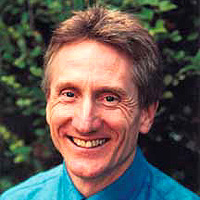 |
 |
Dr. Tom Powers, February 8, 2005, EESAT 110, 3:30 pm Towards An Account of the Moral Agency of Technology Work in science and technology studies (STS) has drawn attention to the agency of many types of technological artifacts and systems. These studies indicate that technology is not value neutral, but they do not connect to traditional philosophical theories of intentional agency. Moreover, STS does not offer what an ethics of technology needs most: a framework for the non-consequentialist moral evaluation of technology. Dr. Powers describes a research program that extends traditional philosophical theories of action and ethics in order to give an account of the moral agency of technology. This account has significant implications for areas such as engineering ethics, universal design, computer ethics, and environmental ethics. Thomas M. Powers received his PhD in philosophy from the University of Texas at Austin (1994). He finished writing his dissertation on Kant while a DAAD-Fulbright fellow at the University of Munich. His primary research interests are in Kant's ethical theory, computer ethics, and the philosophy of technology. Currently he is National Science Foundation Research Fellow in the School of Engineering and Applied Science at the University of Virginia. |
|
Professor Sheila Lintott, February 4, 2005, EESAT 125, 3: 00 pm Artistic Achievement in Nature Appreciation Aesthetically appreciating nature is one common and valuable way in which human beings interact with the natural world. This talk constructs a new model of aesthetic appreciation of nature based on an analogy between nature appreciators and performing artists. This model is able to account for the artistic contribution of nature appreciators, an element that is usually overlooked and is crucial to understanding the theoretical nature and practical implications of nature appreciation. Professor Lintott, a graduate of the University of Wisconsin, teaches in the Department of Philosophy and Religion, Appalachian State University. |
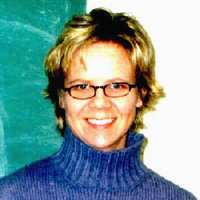 |

